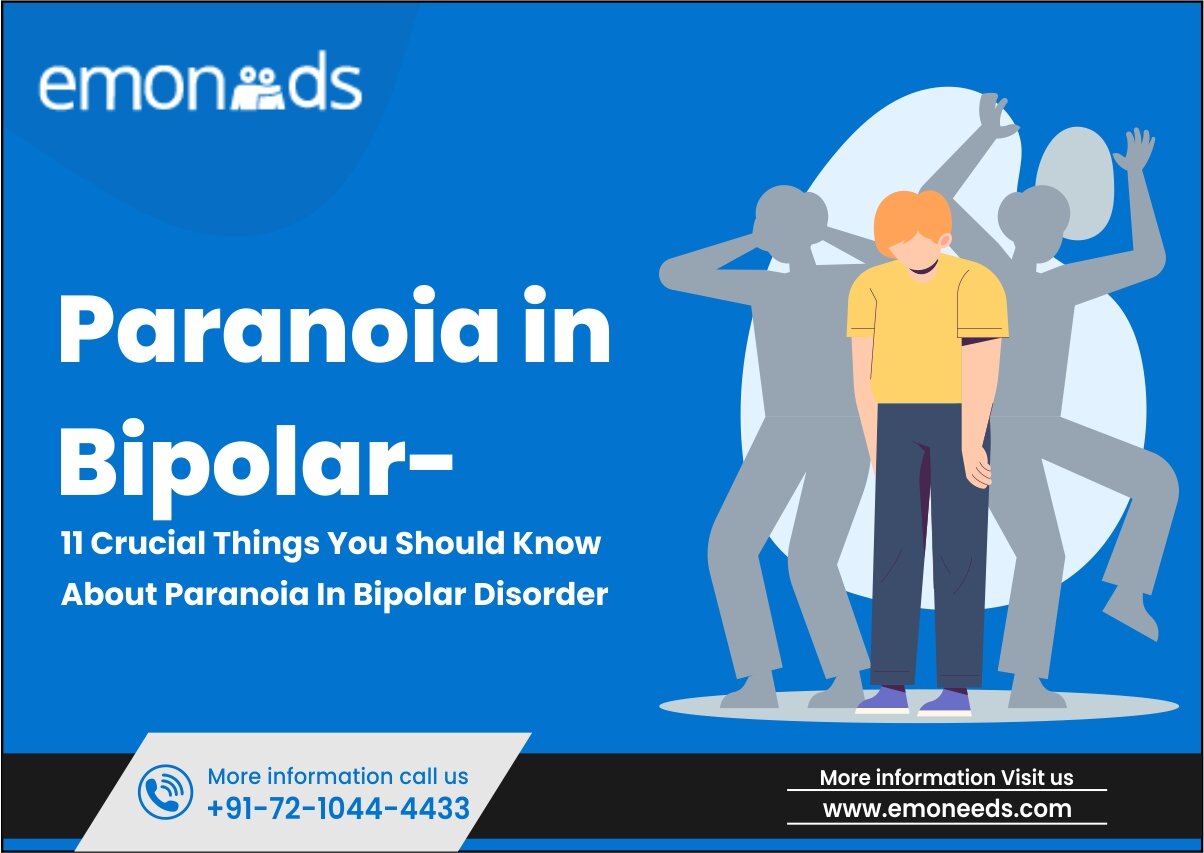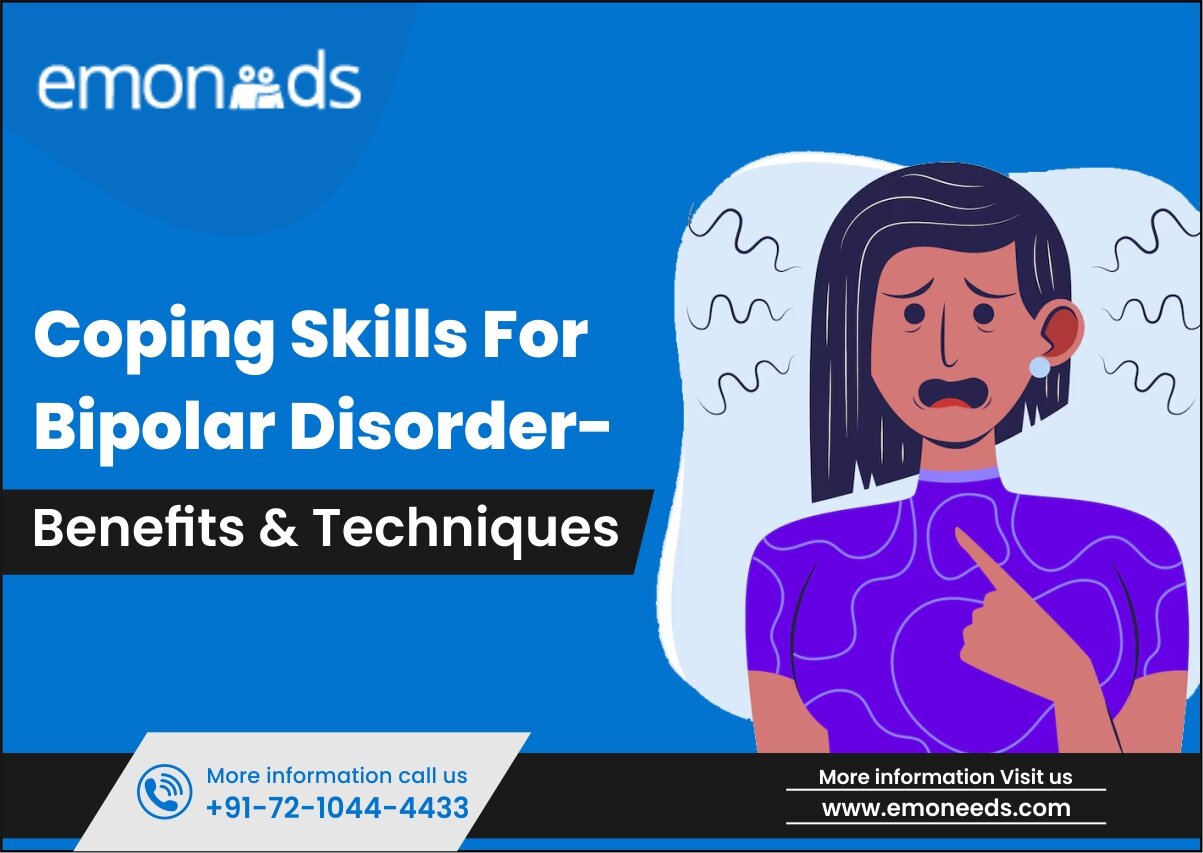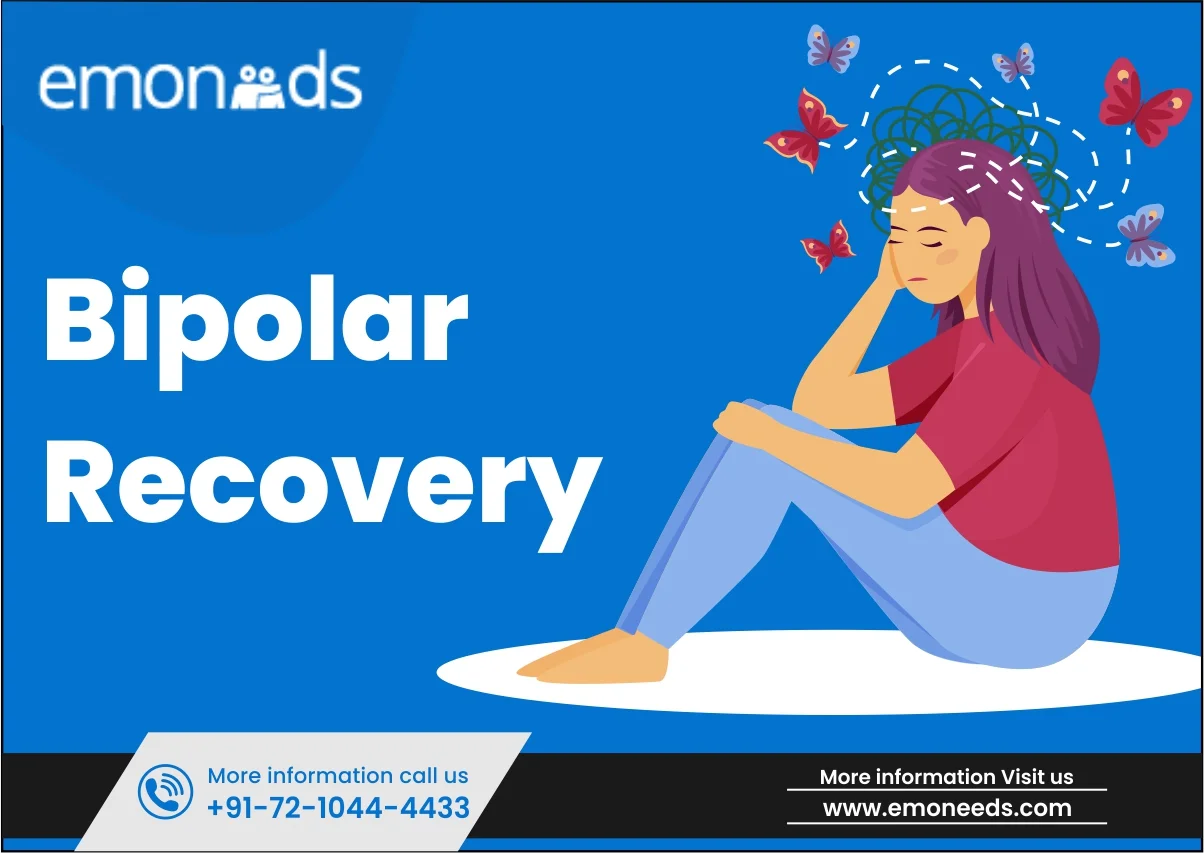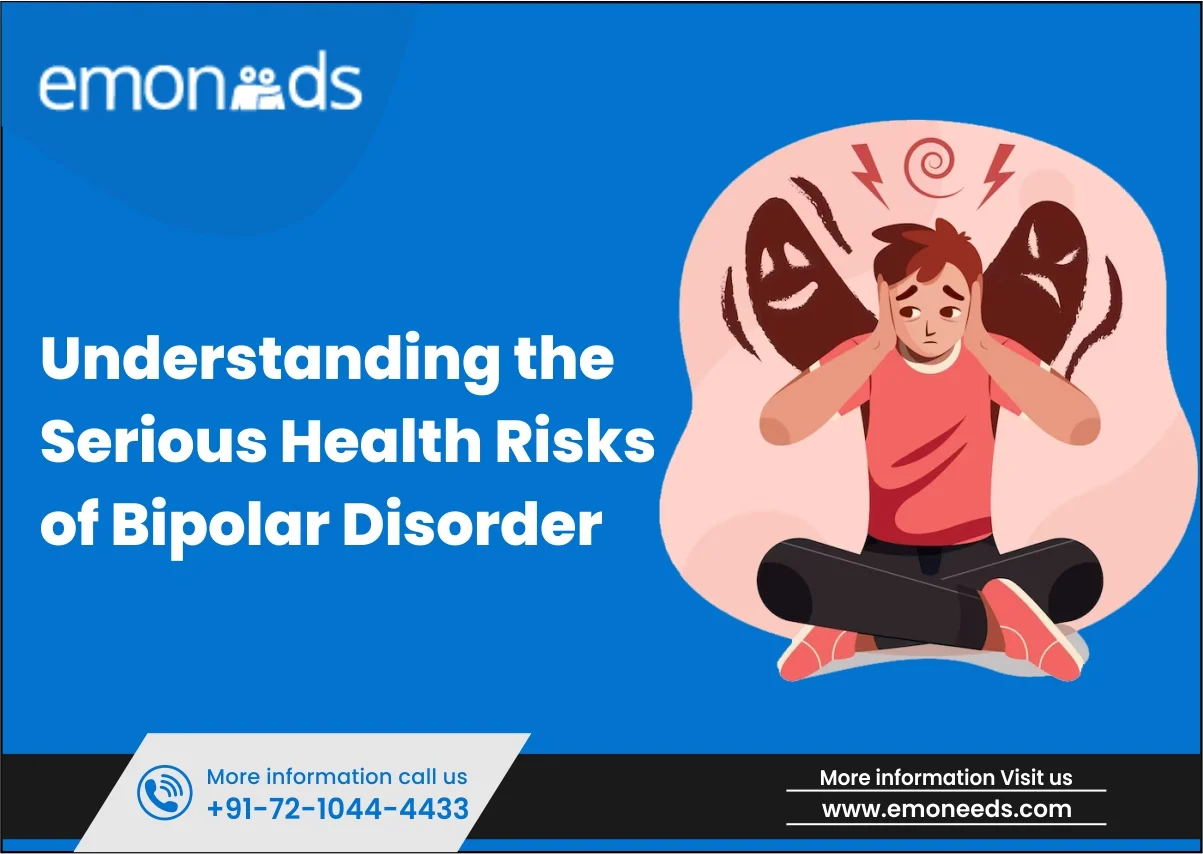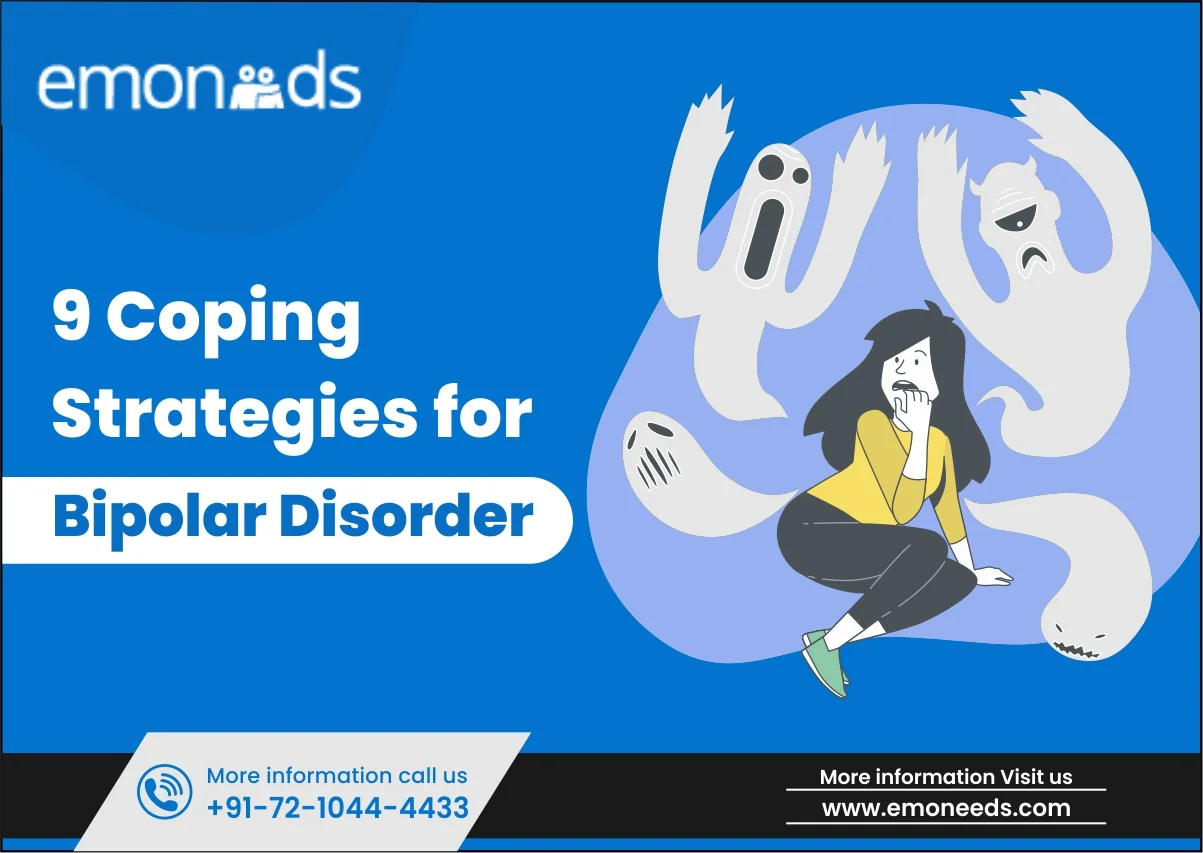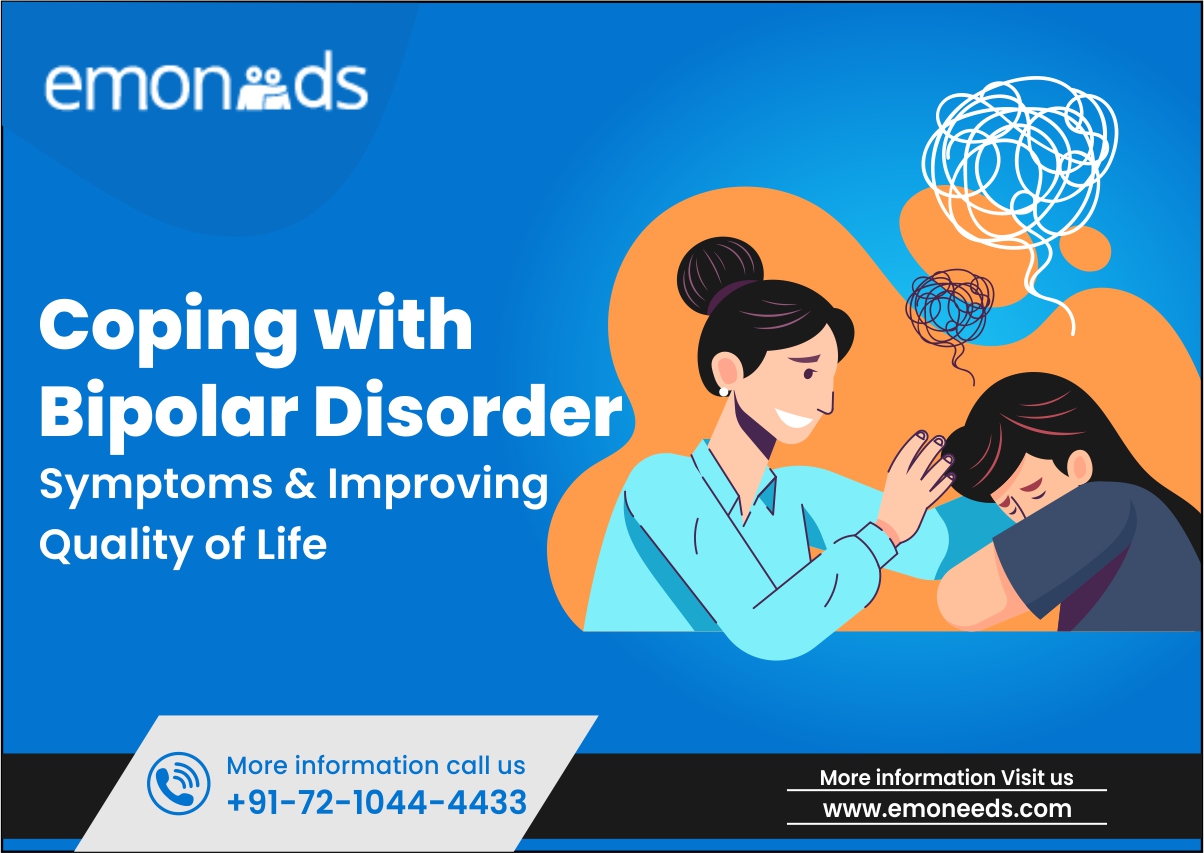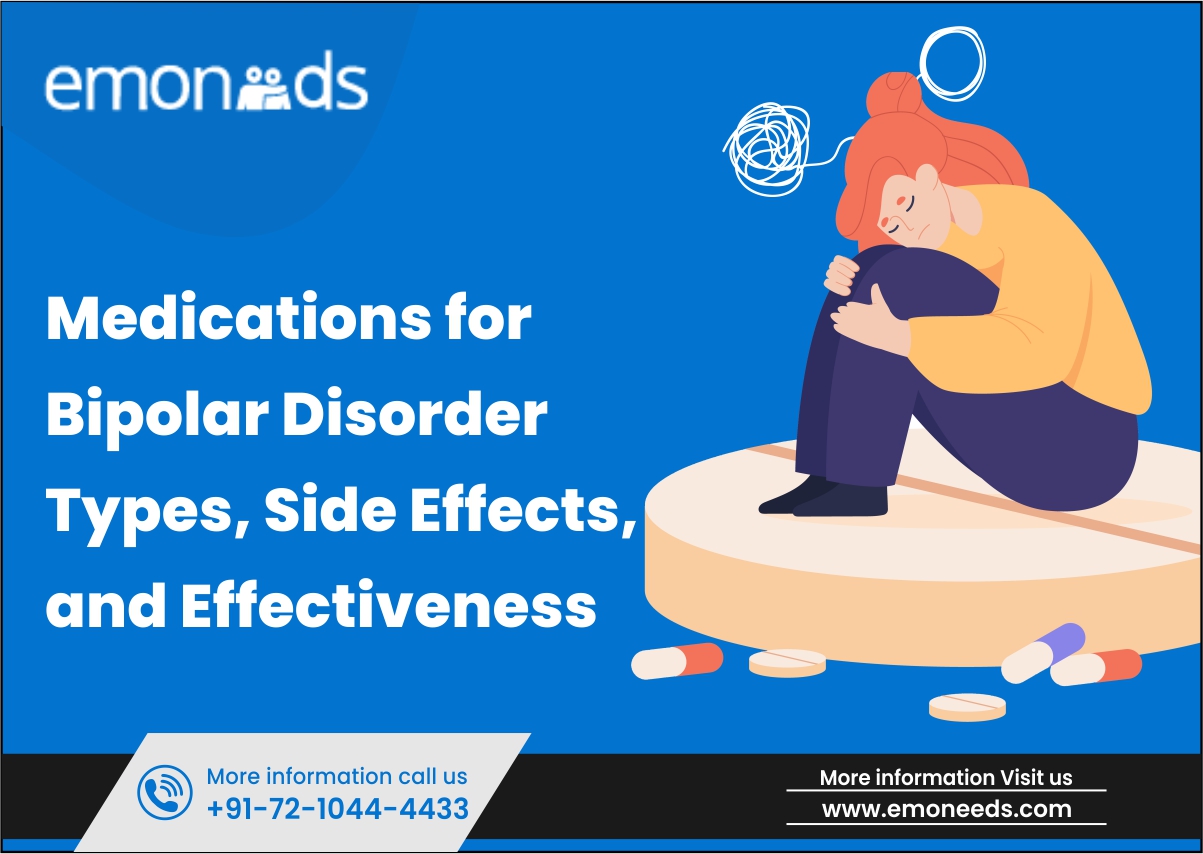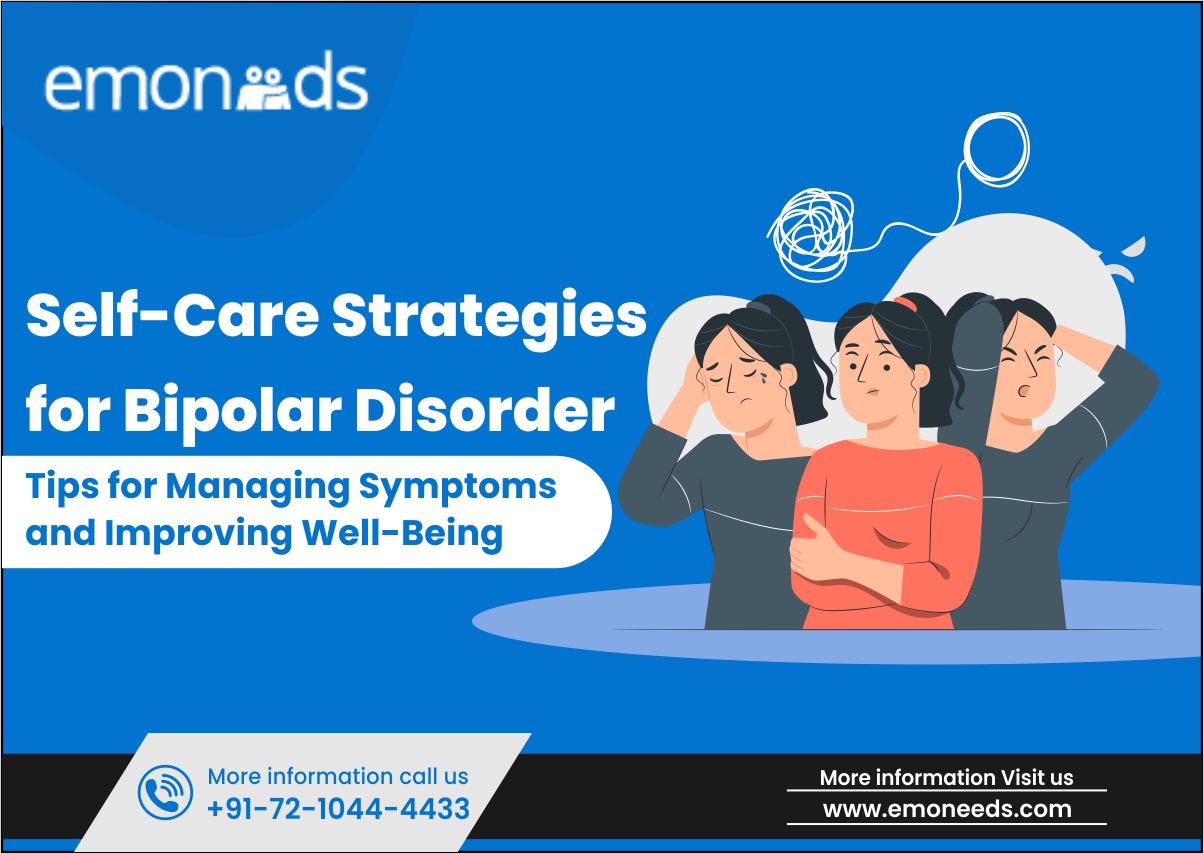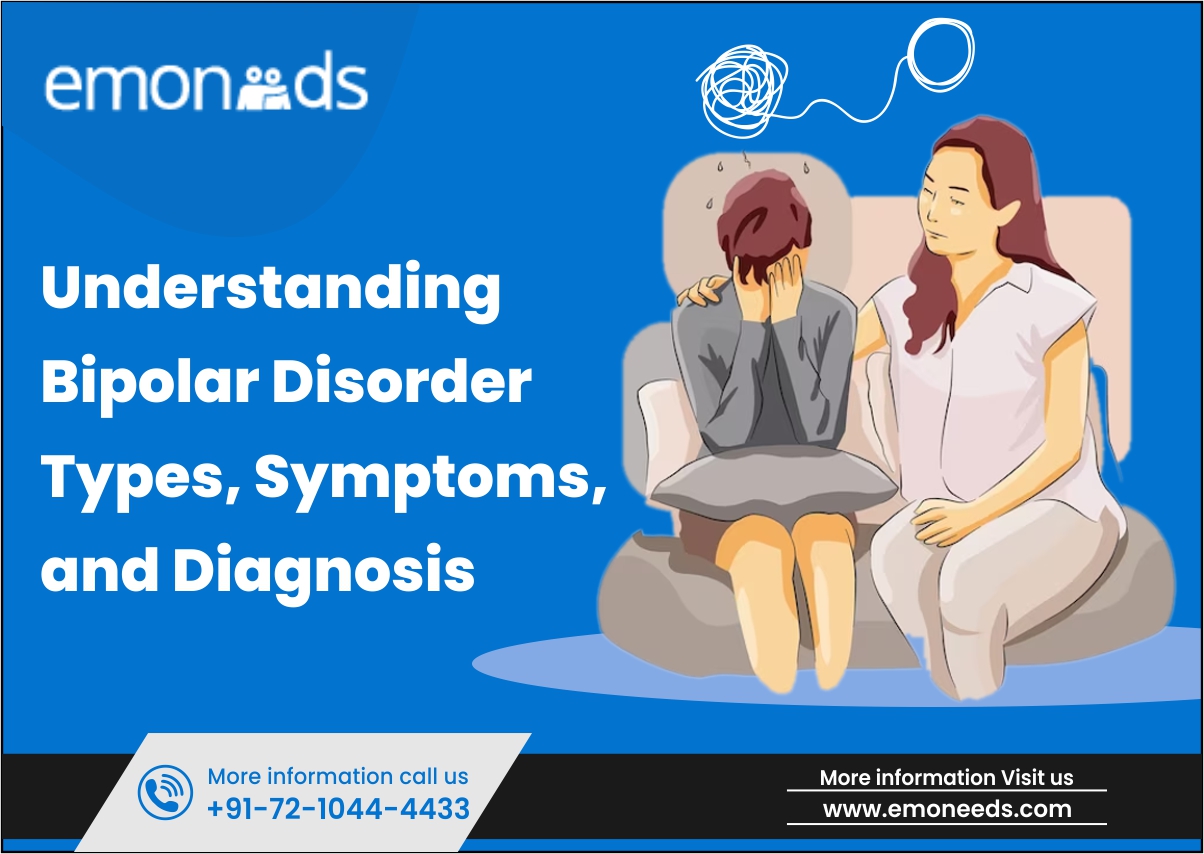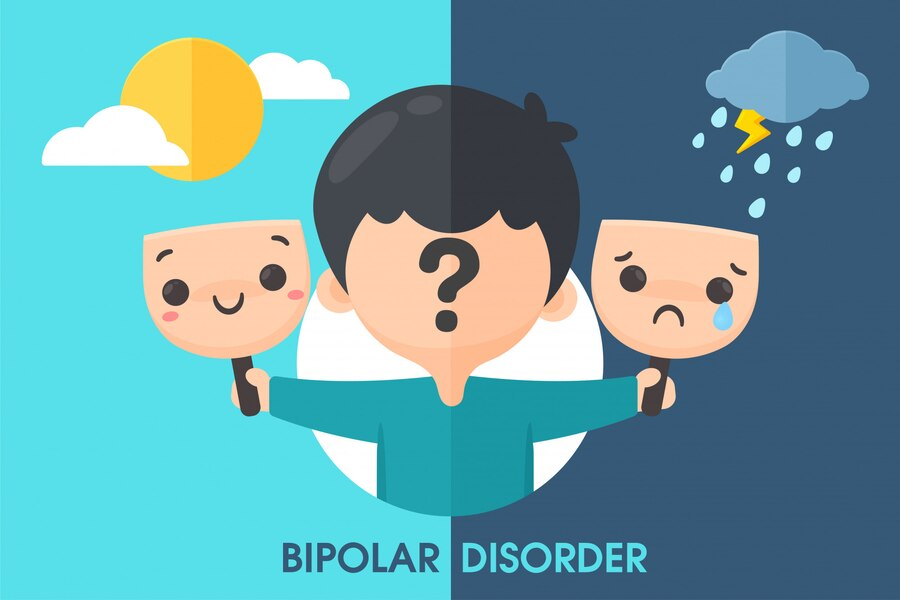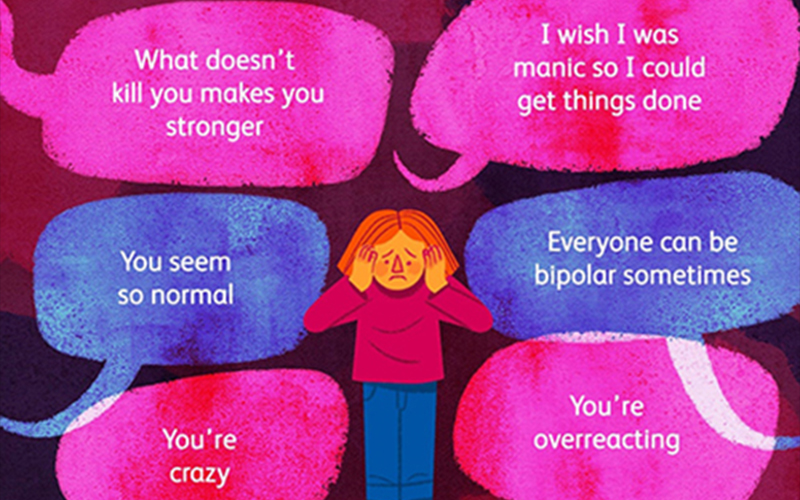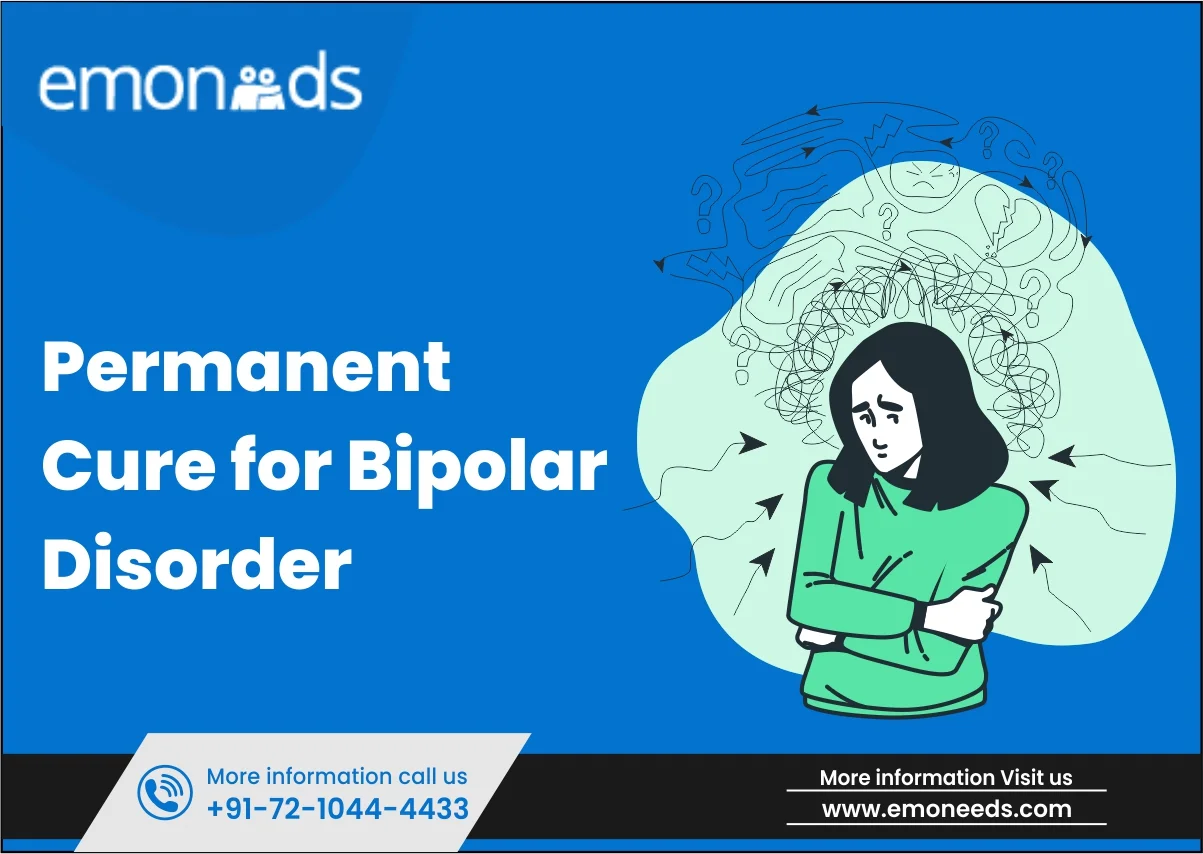
As a lifelong condition, there is no permanent cure for bipolar disorder. Nonetheless, there are some ways to manage it’s symptoms. These can help regulate your bipolar disorder symptoms. For instance, medication, psychotherapy, and lifestyle changes can be of help.
Bipolar disorder can cause dramatic mood swings if left untreated. This means alternating between two stages. The first is the manic stage of high energy, enhanced mood, and increased sociability. The second is the depressed spells of melancholy, low energy, and social seclusion.
Emoneed’s this article investigates whether bipolar disorder may be completely cured or not. We will also understand the effective ways of treating bipolar disorder.
What is Bipolar Disorder?
In simple words, bipolar disorder is a mental condition. Here, the individual experiences mood swings. This means that the person can be experiencing a manic high at one point. Meanwhile, in the next moment, they may feel unusually low.
Three types of bipolar disorders occur in people.
-
Bipolar I Disorder
This involves manic episodes lasting at least seven days. It can also be severe enough to require immediate hospitalization.
-
Bipolar II Disorder
In this type, there are depressive episodes and hypomanic episodes. These are, however, often less severe compared to the other.
-
Cyclothymic Disorder
Next, there is the final type. The patient here, has several highs and lows for at least two years. However, the symptoms are not as intense.
Treatment To Manage Bipolar Disorder
Bipolar disorder is rooted in neurobiological imbalances. Hence, managing these imbalances is our way to effective treatment. Here are some bipolar treatment options that are available for the management of symptoms.
-
Medical Management
Taking the medicines as your doctor prescribes is very important to manage bipolar disorder well. It’s like a team effort with your treatment team – they’re the people helping you. Keep talking to them about your feelings, especially if something seems different. However, be careful with certain medicines during low moods. They might make you feel too high.
Your doctor might suggest medicines like Lithium or Divalproex sodium to keep your moods steady. Remember, your treatment team is there to help. So stay in touch and let them know what’s going on.
-
Therapy Approaches
Therapy is the second step in a bipolar disorder treatment plan. There are several forms of therapy available. However, your doctor can decide what will work best for you.
Some of the effective forms of psychotherapies are as follows-
-
Cognitive Behavioral Therapy
- Focuses on awareness and changing distorted beliefs. It targets behaviors that can trigger mood episodes.
- Equips individuals with practical skills to manage symptoms.
-
Family-focused therapy
- Concentrates on improving communication and problem-solving within primary relationships.
- Emphasizes stress reduction techniques.
-
Interpersonal and Social Rhythm Therapy
- It aims to enhance mood stability by structuring daily routines around social and biological activities.
The benefits of Psychotherapy that will result from it are,
- Emotion regulation and energy level management.
- Resolution of relationship difficulties.
- Early identification of triggers for mania or depression.
- Development of a healthy lifestyle.
As bipolar disorder is cyclical, ongoing therapy facilitates continuous monitoring and stressor management. Moreover, skills acquired in therapy help address factors influencing mood episodes, such as interpersonal conflicts, life transitions, and substance misuse.
-
Changes in Lifestyle
The fluctuations in mood associated with bipolar spectrum disorders are intricately connected to our body’s natural clock, known as circadian rhythms. Disruptions in these rhythms contribute to the vulnerability observed in bipolar spectrum disorders.
Implementing lifestyle changes to foster a healthy circadian rhythm involves:
-
Zeitgebers Exposure
– Ensuring proper exposure to external time cues, including social interactions, consistent eating patterns, and exposure to natural light.
-
A Consistent Sleep Schedule
– Developing and maintaining a regular sleep routine. This supports the body’s natural rhythms.
-
Routine Mealtimes
– Setting specific times for meals each day to contribute to the stability of circadian rhythms.
-
Regular Exercise
– Engaging in physical activity to enhance overall physical well-being and support the body’s functions.
-
Mindful Social Interactions
– Planning social engagements with defined limits, particularly considering bedtime, to align with circadian rhythms.
Self-Care And Long-Term Management
Identifying the appropriate combination of treatments for bipolar disorder is a crucial initial step, but effective long-term management goes beyond a mere treatment plan. Consistency emerges as a pivotal factor. It is important to minimize both the severity and recurrence of mood episodes. Self-management becomes a foundational aspect of the recovery journey. This involves a range of strategies. For instance, a balanced work-life dynamic, positive relationships, a nutritious diet, regular exercise, and sufficient sleep are some starting points.
Even though mood changes in bipolar disorder can’t always be avoided, people can get good at spotting early signs and using strategies to lessen their impact. Doing things like yoga, mindfulness, and meditation helps them stay more aware of mood changes. Also, taking care of themselves with activities like bathing, reading, or listening to music is a good way to manage mood shifts before they get worse. This overall self-management approach helps prevent mood episodes.
How To Take Care of yourself if diagnosed with Bipolar Disorder?
Below, we have talked of some ways by which you can take care of yourself.
-
Learn About Bipolar
Take the time to understand bipolar disorder. Figure out what makes your moods change, and learn ways to help yourself. Knowing the signs of when you might feel high or low can help you manage those times better.
-
Have Supportive Friends
It’s important to have friends who understand and support you. Tell people you trust about your diagnosis if you feel comfortable. Having good connections helps you deal better with your diagnosis, and joining support groups can make you feel less alone.
-
Find Ways to Manage Yourself
Discover what works for you in handling bipolar disorder. Stick to a good sleep and eating schedule, learn to control your emotions with techniques like meditation, and try mindfulness to stay balanced when things get too intense.
-
Accept Changes and Feelings
Understand that a bipolar diagnosis means things might change in your life constantly. It’s okay to feel sad about things you might not do anymore, like staying up all night. Let yourself grieve these changes and accept your new situation. It’ll help you work better with your treatment.
-
Drop Self-Stigma
Letting go of shame helps you live with the diagnosis more comfortably, connect better with your support system, and stress less. Remember, it’s just an illness you’re experiencing – it doesn’t define you.
-
Use Mindfulness and Control Emotions
Make mindfulness part of your daily routine to keep track of your feelings and avoid triggers. Learn how to handle your emotions better through practices like meditation. These skills can help you manage mood swings and build stability.
-
Stick to a Simple Self-Care Plan
Follow a routine that takes care of you. For instance, prioritize good sleep and eat balanced meals. Also, exercise regularly and do activities that make you happy and relaxed.
When To Consult A Specialist?
Consult a specialist for bipolar disorder when your current treatment plan isn’t effective. Specialists play a vital role in helping navigate symptoms and offering insights into medication adjustments, diverse therapies, or support groups. Collaborate with a trusted doctor to discuss concerns and explore alternative treatments, ensuring a personalized approach. Seeking a specialist is a proactive step toward optimal bipolar management. This potentially diminishes the frequency and severity of mood episodes. Therefore, working closely with a knowledgeable professional for effective and regular treatment can make your life more stable and better.
Conclusion
In short, there isn’t any complete cure to bipolar disorder. Sadly, individuals have to carry it throughout their lives. However, this doesn’t hinder them from living meaningful lives, as treatment strategies can help reduce the symptoms. The most effective treatment for bipolar disorder can, however, be only decided by your doctor. Be it medication or lifestyle changes, there is always hope. Lastly, reach out to your doctor whenever the need arises.
FAQ
Is it possible to overcome bipolar disorder?
There is no permanent cure for bipolar disorder, and one cannot overcome it fully. However, we can still say that individuals can overcome the symptoms related to the condition. With proper and effective strategies, people can overcome them and live fruitful lives.
Do bipolar people go back to normal?
By normal, we can say that bipolar people will have periods of experiencing normalcy and stability. However, there will be episodes of highs and lows as it is a lifelong condition.
Do bipolar people fall in love?
Yes, of course. Bipolar people can fall in love and engage in fruitful, healthy romantic relationships. However, both individuals need to understand the intricacies of the condition and ways to manage it.
Can you live with bipolar without medication?
The answer to this can be best discussed with your doctor. Whether you will need medication or not depends a lot on the severity of your symptoms. It also depends upon how far you have been able to manage it without it.
Can you live a long life with bipolar disorder?
Yes, definitely. People with bipolar condition have lived long and healthy lives with the support of their doctors, their friends, and family and proper treatment and self-care methods.
